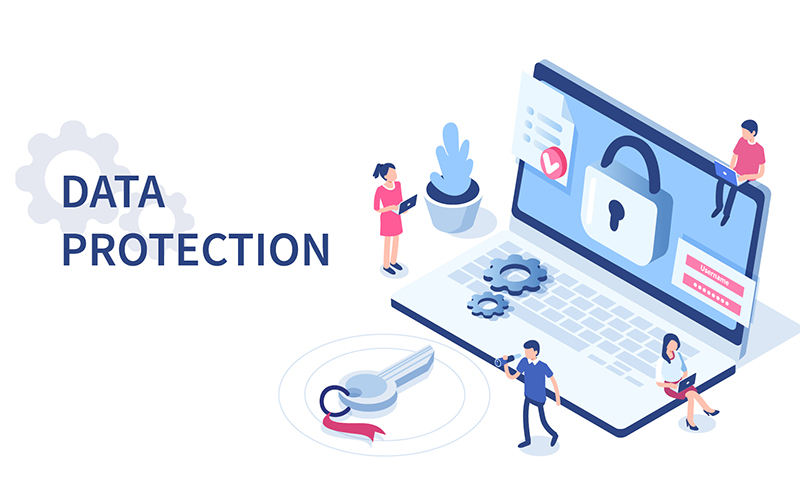Why It’s So Important to Protect Your Personal Information?
- 1 Types of Risk Present Online
- 1.1 Phishing Scams
- 1.2 Malware
- 1.3 Identity Theft
- 2 How to Protect Yourself from these Cybercrimes?
- 2.1 What else can you do to secure yourself?
- 2.2 Never Store Login Credential on Shared Devices
- 2.3 Always Use Strong Passwords
- 2.4 Your Firewall should Always be Activated
- 3 On a Final Note
Protecting yourself is a must, whether it is in the physical world or the digital world. Just like you would want to stay away from thieves and pickpockets on the street, you would also like to stay away from phishing scammers, frauds, and intruders on the internet.
The internet can be a dangerous place if you are not careful. People often become victims of all kinds of cybercrime simply because they do not pay close attention to their security or safety online.
That is why we thought we would discuss why you should keep yourself private and secure, no matter what you do online. Moreover, let us also tell you how you can achieve the security and privacy you deserve. Without further ado, let’s get started.
Types of Risk Present Online
While the internet can be a great place to get your daily dose of entertainment, it can be equally threatening for your personal information if you are not careful. Just have a look at some of the most prominent forms of cyber threats that you ought to stay safe from:
Phishing Scams
This form of cybercrime is usually performed via email. A phishing scam comes to you as an email from an email address that appears legitimate. When in reality, the email address is enough to alert people of its inauthenticity.
Once you open the email, you will likely find a link or a request asking you for your personal information, such as credit card numbers, social security numbers, etc. If you make a mistake by clicking on that link or sharing your personal information, you could end up in serious trouble, as that information could be used for all purposes.
Malware
Malware is software designed to infiltrate a person’s computer and leak information to a server elsewhere. It may be downloaded unintentionally if you click on the wrong URL or link, either by mistake or knowingly. That is why you must never click on random links while browsing the web.
Identity Theft
Identity theft occurs when someone uses another person’s personal information, such as a social security number, credit card number, or other identity credentials, without permission. Cybercriminals often commit identity theft to make unauthorized purchases and transactions, leaving the actual person in significant trouble.
How to Protect Yourself from these Cybercrimes?
Now that you know what kinds of risks are present online, you should also be able to protect yourself. If you buy VPN subscriptions, you can easily avoid several of these threats.
A VPN subscription allows you to hide your IP address and replace it with a different IP address from a different region. Additionally, your session history, personal information, and other data are not stored online since your actual location is not broadcast to the public.
Moreover, people often connect to public Wi-FI networks to access free Wi-Fi. While that is not recommended, buying a VPN subscription for such Wi-Fi networks will be relatively safer. Cybercriminals can connect to these Wi-Fi networks just like you can. Thus, it makes it relatively easy for them to access people’s information without their knowledge. A VPN service could help you stay safe from such intruders.
What else can you do to secure yourself?
There is a lot more that you can do to protect yourself from threats online. If you buy VPN subscriptions, you might have minimized the risk, but it only makes sense to take every measure to secure yourself. Here are a few things that you could do:
Never Store Login Credential on Shared Devices
People often leave themselves logged in on official devices or the devices in educational institutes. While this might save you seconds every time you log in, the consequences could be catastrophic. If your personal information ever falls into the wrong hands, you could face fraud, theft, and much worse.
Always Use Strong Passwords
Your password is the first line of defence against any threats online. If your password is weak and easily guessable, then you cannot do much after that. A password should ideally be composed of uppercase and lowercase letters, numbers, and special characters. Furthermore, a password should never be as simple as your birth date, social security number, or address.
Your Firewall should Always be Activated
Your PCs come with a firewall preinstalled on the system. This firewall is designed to prevent minor threats that attempt to breach your system. If you do not have your Firewall activated on your system, you ought to enable it immediately.
On a Final Note
You should not have to compromise on your personal information just because you do not know everything about the web. Hopefully, after reviewing the discussion above, you better understand online risks and ways to protect yourself.

















